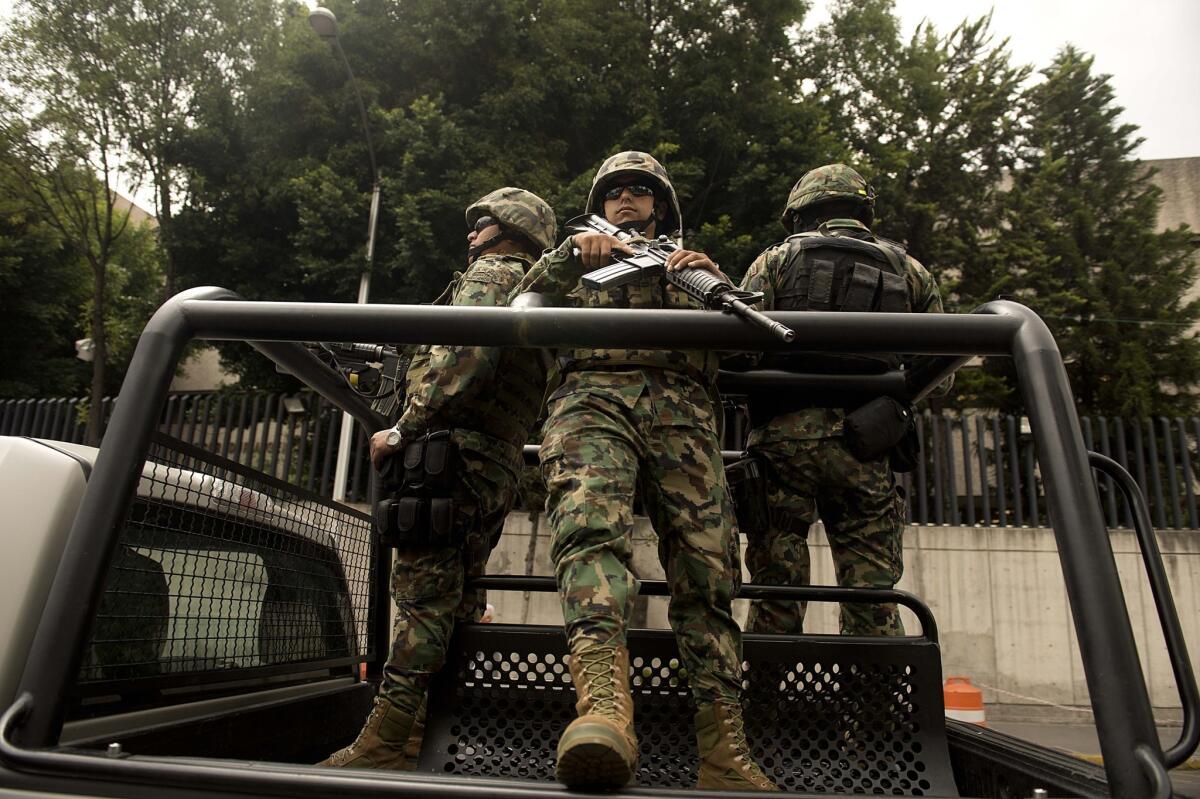Mexican authorities rescue 81 migrants held against their will

MEXICO CITY -- Mexican authorities in the eastern border state of Tamaulipas said Wednesday that they had rescued 81 migrants who were being held against their will in a two-story building in the city of Reynosa, across from McAllen, Texas.
Officials said the migrants were from Central America, except for one Mexican. All had hoped to cross the border illegally.
Such mass kidnappings are common in Mexico, typically carried out by armed groups who demand money from the migrants’ families in exchange for their release. The Mexican army freed 165 migrants in a similar case last month in the Tamaulipas town of Diaz Ordaz.
Tamaulipas is under the control of the notorious Zetas gang, whose leader, Miguel Angel Treviño Morales, was captured by authorities Monday.
The Zetas were formed years ago by leaders of the Gulf cartel as their muscle, recruited from a group of deserters from the Mexican army. The Zetas eventually split from the cartel and spread their operations through southern Mexico and Central America. The gang has exhibited brutality such as beheadings, massacres of migrants, torture and dismembering of live victims.
Separately Wednesday, a journalist who covered the police beat in the Mexican state of Oaxaca was found dead, reportedly with gunshot wounds. It was unclear whether Alberto Lopez Bello was attacked in retaliation for his work for El Imparcial, a newspaper in the city of Oaxaca, the state capital.
ALSO:
From YouTube to law: How the ‘5 causas’ of Brazil went viral
Follow pope online, get to heaven sooner -- Facebook likes don’t count
Temporary Russia asylum may end Edward Snowden airport stay ‘any day’
richard.fausset@latimes.com
Cecilia Sanchez of The Times’ Mexico City bureau contributed to this report.
More to Read
Sign up for Essential California
The most important California stories and recommendations in your inbox every morning.
You may occasionally receive promotional content from the Los Angeles Times.










